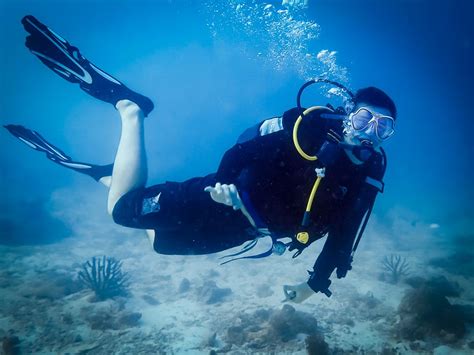Are you passionate about exploring the depths of the ocean and unraveling its mysteries? Embark on an enriching marine biology internship near you to gain hands-on experience and delve into this captivating field.

Why Consider a Marine Biology Internship?
- Gain practical experience: Immerse yourself in real-world marine research and conservation projects.
- Develop essential skills: Hone your scientific research, data analysis, and field techniques.
- Expand your network: Connect with professionals in the field and forge valuable connections.
- Explore career options: Discover potential career paths and gain insights into various aspects of marine biology.
- Make a difference: Contribute to ongoing research and initiatives that protect marine ecosystems.
How to Find Marine Biology Internships Near Me
1. University Programs:
- Contact your university’s marine biology department or career center.
- Attend industry events and career fairs to learn about potential opportunities.
2. Online Platforms:
- Utilize internship search engines such as Indeed, LinkedIn, and Glassdoor.
- Explore university-affiliated websites like Handshake or Graduway.
3. Research Organizations:
- Visit the websites of marine research institutions, aquariums, and conservation organizations.
- Reach out directly to hiring managers or research leads.
4. Networking:
- Attend conferences and industry meetings to connect with professionals.
- Join professional organizations like the Society for Marine Mammalogy or the Association for the Sciences of Limnology and Oceanography.
Types of Marine Biology Internships
1. Research Internships:
- Engage in data collection, analysis, and interpretation for ongoing marine research projects.
- Topics may include marine biodiversity, climate change impact, or ecosystem dynamics.
2. Conservation Internships:
- Assist in wildlife monitoring, habitat restoration, or marine policy implementation.
- Learn about marine conservation practices and strategies.
3. Education Internships:
- Work with public outreach programs, develop educational materials, or lead marine science workshops.
- Share your passion for marine biology with the community.
Key Skills for Marine Biology Interns
- Strong scientific foundation in biology, ecology, and chemistry
- Proficiency in field research techniques
- Data analysis and statistical skills
- Excellent communication and presentation abilities
- Ability to work independently and as part of a team
Tips for Applying for Marine Biology Internships
- Tailor your resume and cover letter: Highlight your relevant skills and experience for each specific internship.
- Network with professionals: Reach out to hiring managers and researchers to express your interest.
- Attend virtual or in-person interviews: Prepare thoroughly by researching the organization and asking thoughtful questions.
- Demonstrate your passion: Showcase your enthusiasm and commitment to marine biology.
- Follow up: Send a brief thank-you note after each interview and check periodically for updates.
According to the National Oceanic and Atmospheric Administration (NOAA), the projected job growth for marine scientists and conservationists is expected to be 11% from 2020 to 2030.
Table 1: Major Marine Research Institutes in the United States
| Institution | Location | Areas of Research |
|---|---|---|
| Woods Hole Oceanographic Institution | Woods Hole, MA | Oceanography, Marine Biology, Climate Change |
| Scripps Institution of Oceanography | La Jolla, CA | Ocean Sciences, Climate, Marine Life |
| Monterey Bay Aquarium Research Institute | Moss Landing, CA | Marine Biodiversity, Ocean Exploration |
| National Oceanic and Atmospheric Administration (NOAA) | Silver Spring, MD | Oceans and Atmosphere, Climate Change |
| University of Miami Rosenstiel School of Marine and Atmospheric Science | Miami, FL | Marine Biology, Oceanography, Meteorology |
Table 2: Top Marine Biology Internship Providers
| Organization | Location | Types of Internships |
|---|---|---|
| The Marine Mammal Center | Sausalito, CA | Marine Mammal Care, Conservation, Research |
| Mote Marine Laboratory | Sarasota, FL | Marine Science, Conservation, Education |
| National Aquarium | Baltimore, MD | Marine Animal Care, Conservation, Education |
| SeaWorld & Busch Gardens Conservation Institute | Orlando, FL | Wildlife Rehabilitation, Conservation, Research |
| The Nature Conservancy | Global | Marine Conservation, Stewardship, Policy |
Table 3: Pros and Cons of Marine Biology Internships
| Pros | Cons |
|---|---|
| Hands-on experience | Competitive application process |
| Skill development | Limited availability |
| Networking opportunities | Time commitment |
| Career exploration | May require relocation |
| Contribution to research and conservation | Can be physically demanding |
Table 4: Marine Biology Applications
| Application | Description |
|---|---|
| Remote sensing: Monitoring marine environments and ecosystems using satellite data. | |
| Biomimicry: Using marine organisms as inspiration for technological innovations. | |
| Marine engineering: Developing sustainable and efficient marine technologies. | |
| Aquaculture: Farming aquatic organisms for food and medicine. | |
| Marine biotechnology: Harnessing the unique properties of marine organisms for biomedical and industrial applications. |
Conclusion
Embracing a marine biology internship near you offers an invaluable opportunity to immerse yourself in the fascinating world of marine life. By gaining practical experience, expanding your skills, and making meaningful connections, you can lay the foundation for a fulfilling career in this field. Whether you aspire to unravel the mysteries of the deep or advocate for marine conservation, an internship is the perfect starting point for your journey.
